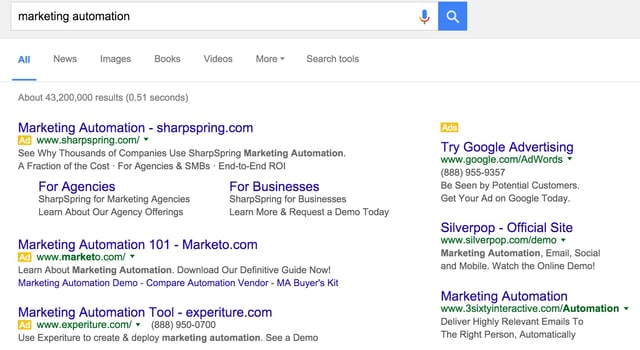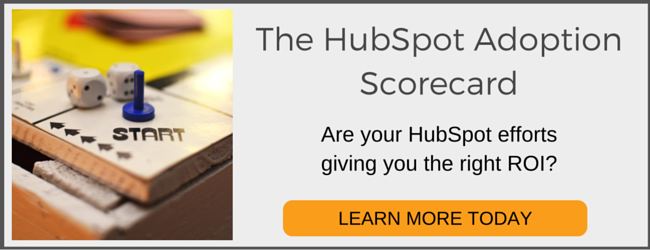 As you may know, one of the key components of inbound marketing is building a strong and consistent blogging platform in order to support organic traffic and lead generation. There is virtually no other tactic that has the evergreen impact that blogging does.
As you may know, one of the key components of inbound marketing is building a strong and consistent blogging platform in order to support organic traffic and lead generation. There is virtually no other tactic that has the evergreen impact that blogging does.
Think of your blog as:
- Laying bricks to build a castle of information and SEO goodness - while each brick may not seem significant, the sum of the parts can be tremendous!
- A perpetual sales person - blogs never sleep, they never eat, they may occasionally rest if your site is down, but you get the point.
- Your clones - ever get tired of answering the same questions over and over or wish you could be out selling and doing 12 other things simultaneously? Well, blogs are kind of like your clone army that are out there to reach more people and speak on your behalf.
The importance of blogging cannot be understated. In fact, blogging accounted for easily over half of all our website traffic in 2015.
And according to HubSpot in a recent post about the benefits of business blogging, 70% of their Marketing Blog's visits and 90% of leads come from old posts vs. new posts in any given month.
A Familiar Blogging Scenario
So you sit down, you are properly caffeinated, you have the creative juices flowing, and you are ready to begin your blogging process.
While we know that there is a heck of a lot that goes into determining search engine rankings outside of keywords, they are still a fundamental research tool that most marketers use to help guide their blogging strategy.
Keyword research can help us determine how popular a particular search phrase or topic is and how much competition there is out there to rank for that.
Enter the HubSpot Keyword Tool
To set the stage up front, we are HubSpot partners and full users of the keyword tool. As a whole I think the tool is great. We use it for ourselves, our clients, our blogs, our content offers, our calls-to-action, etc.
When you enter the HubSpot Keyword Tool you are presented with a table layout that breaks down all currently-entered keywords by:
- The date they were created
- The total monthly searches for each phrase
- Where you currently rank from positions 1-100+ in search results
- The difficulty of ranking for that phrase from 1-100 (100 being most difficult)
- An estimate of the cost-per-click price that you would need to pay if you were going to target a term in Google AdWords
- The number of campaigns that that keyword has been mapped to
There are additional ways to sort and expand this keyword data, but the breakdown above is the standard organization for the keyword tool.
Monthly searches and difficulty ranking are often where we spend a lot of time analyzing to determine the best topics to target.
Searches that are more obscure, specific, or "long-tail" will often times yield low monthly searches. Take for example:

In this case there unsurprisingly are not too many folks searching for "how to tame an anteater while riding a unicycle". The difficulty is at about the medium range, presumably because there are competing terms here (unicycle, anteater) that are quite common that would create a fair amount of competition.
Note: in the HubSpot Keyword Tool, low is defined as fewer than 10 monthly searches.
Some Puzzling Results from the Tool
After gaining a lot of experience with the HubSpot keyword tool both internally and with my clients, I began to notice a trend that was a bit puzzling.
Some search phrases that I felt strongly would have at least notable search volume (aka not low) spit back out a monthly search volume of low when entered into the tool.
 I first started investigating this during Pope Francis's visit to the United States. I plugged in some related search terms into the tool such as "Pope Francis visit", "who is Pope Francis", etc. and many of them were coming out as low.
I first started investigating this during Pope Francis's visit to the United States. I plugged in some related search terms into the tool such as "Pope Francis visit", "who is Pope Francis", etc. and many of them were coming out as low.
I thought perhaps those that were time-relevant such as "Pope Francis visit" might just be picking up steam - but that still didn't explain why something like "who is Pope Francis", which had been relevant for some time, would show as low.
After digging in further and analyzing across other keywords and accounts, I was fairly confident that I had stumbled upon a real trend.
Consulting Google AdWords
To verify this I needed to turn to keyword research tool that I could be certain had 100% accurate information - and who better to turn to than the "keeper of the keys" (pun intended), Google.
Google used to have a standalone tool for keyword research but a while back this was rolled into Google AdWords to consolidate the two platforms.
As a quick explanation for anyone unfamiliar with this, Google AdWords is Google's online advertising platform that is designed to skyrocket your page to the top of the results for any given search term that you choose - that is of course if you are willing to pay the piper for it.
Essentially this is Google's way of monitizing their platform and the vast array of data that they have accumulated on us and our behaviors as explorers of the Internet.
These Google ads are a staple piece of the standard Google results page that you are likely very familiar with. Here is an example for the search term "marketing automation" which shows some of HubSpot's competitors bidding in order to gain a competitive advantage over HubSpot who has the #1 ranked organic page for this query.

Once I finished setting up my Google AdWords account, I moved into the first step of creating a campaign which includes keyword research.
For the purposes of this experiment I used Google AdWords purely as a research tool and did not take any campaigns to completion - you can still see monthly searches without creating/paying for a campaign.
At this stage you can set your location just like in HubSpot and here you can select if you want results just to be from the "search network" or also "display networks" which expand beyond the Google search engine.
So to keep in line with my HubSpot configuration I set the location to USA and stuck with just the search network.
And sure enough the results proved my hypothesis that the designation of "low" could not be relied upon. "Who is Pope Francis" yielded 4,400 in monthly search popularity, "Pope Francis in Philadelphia" yeilded 2,900 compared to low, and other comparisons continued to show this disparity.
So I asked, "what gives?"
The Answer from HubSpot
This of course opened up the flood gates of doubt for the results that we had been seeing from the tool since we began using it. Panic ensued and I decided to give HubSpot a call to figure out what the catalyst was for the differences that I was seeing.
What it boiled down to was HubSpot and other third party sources are reliant on how Google and other search engine companies decide to release that data publicly. Here is their full, verbatim response:
"Essentially our keywords tool depends heavily on the information that search engines release out to the public. If Google, or any other search engine, decides to keep certain search trends encrypted, HubSpot's keywords tool will not be able to gather enough data and therefore display the monthly searches as low. Only after the search engines make those trends publicly available, then our system will be able to collect the data and give you a more accurate result. Until then, those most accurate data about keyword trends will come from Google itself by using the Google Adwords tool."
So What's the Bottom Line?
One bottom line is clear and one we still need to explore.
First, your motto should be: "If HubSpot shows low, the results I should forego and it's off to Google AdWords I go."
The second bottom line we haven't quite gotten to the bottom of (again, pun intended people) - is that even when HubSpot shows an actual numeric result for monthly searches, it can still vary from the results that Google AdWords shows.
This could be due to aggregated data that includes Bing and other search engine results, but as we all know Google is the big dog that we are concerend about.
So until we have clarity on the disparity between these results, the HubSpot keyword tool will shine in the area of tracking, but should always be double checked with Google AdWords when looking for search volume.
Leave a comment about your experience with the keyword tool or if you have any additional insights on HubSpot vs. Google AdWords!



